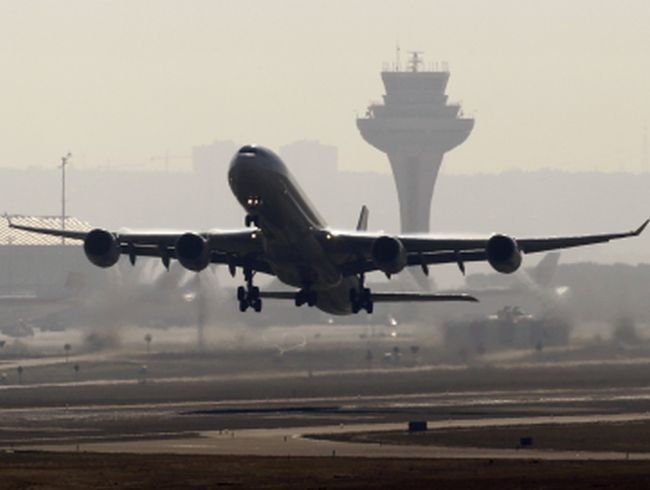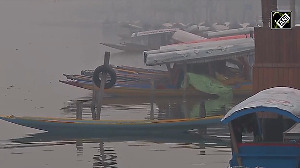 Concerned over "unsatisfactory performance" of Indian airlines in taking on foreign competition, the government is considering a new strategy to motivate them to perform and take away overseas flying rights of those who fail to do so.
Concerned over "unsatisfactory performance" of Indian airlines in taking on foreign competition, the government is considering a new strategy to motivate them to perform and take away overseas flying rights of those who fail to do so.
"We have to work out a strategy that will motivate our players to perform. The reality is that Indian players are not able to perform - neither the public nor the private sector (airlines)," Civil Aviation Minister P Ashok Gajapathi Raju told PTI.
He was replying to questions on the performance of Indian carriers vis-a-vis the bilateral air traffic rights granted to them and foreign carriers to fly to each others' countries. To a question on the air traffic rights between India and countries like Dubai, Raju said, "Nobody believes that the (air service) agreements were done with any commercial analysis in mind."
"So, decisions at very high levels still raise questions of integrity which, at those levels, should not happen. Now, in the event of this being a fact, then it becomes very unbecoming," the minister said in an interview. S
ome Indian carriers "often ask for seats but do not fly. Suppose an airline gets additional seats but does not operate its flights that frequently, can they block those additional seats," he asked, while giving the example of Kingfisher Airlines which has shut down.
"Do we have to keep their (Kingfisher's) seats aside? There might be a legal angle to it but we have to go into all these aspects," he said.
Designated airlines of a country are granted rights to operate flights to the other nation and vice-versa. The rights are either given in terms of the number of flights or seats per week.
The capacity of the aircraft is also fixed at times under these bilaterals. Since May 2013 till date, 17 new international routes have been granted to Indian carriers to fly on.
On the overall aviation scenario in the country, the minister said that despite a growth in passenger traffic, there was a "drift" in the aviation sector which needed to be arrested.
"There has been a drift in civil aviation (sector). We would like to arrest this drift. That is the general feeling we get," he said, adding that all strategies would have to be geared to end the drift.
Stressing that the government's priority was to promote remote connectivity, he pointed out that "this is a losing area economically. So that is major limitation... We will have to see how we can overcome it".
Raju said the Civil Aviation Ministry has planned to hold consultations with all stakeholders on promoting air cargo, which would in turn promote air connectivity in the remote parts of the country, apart from generating economic activity.
"We are a vast source of perishable goods across the world. If this potential is tapped and the state governments are also involved, we can ask airlines to carry such items. This will give results," he said.
Asked about high fuel costs being borne by Indian carriers mainly due to taxes charged by states, Raju said he has urged all chief ministers to address this problem as it "acts as a dampener to aviation activity".
State sales taxes and other charges on jet fuel average at about 29 per cent. On the massive expenses borne by airlines in repairing their fleet abroad, he agreed that the maintenance, repair and overhaul (MRO) operations also faced high rates of taxation. Regarding the role that could be played by state governments to improve aviation activities across India, the minister said growth in aviation sector in states would lead to heightened economic activity and generation of jobs.
Raju said there were suggestions for state governments to come up with "concessions like those given to SEZs (special economic zones)" to the MROs which would not only add to economic activity in the states but also generate jobs.
"Airlines will fly where the costs are low. Increased ticket costs are borne by the consumers. So if you reduce fuel costs, that will make tickets cheaper and encourage more people to fly from that place making the place more attractive," he said.










